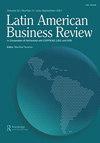The Tragic Consumer: A Nietzschean Reading of Irremediably Unsatisfactory Consumption
IF 0.7
Q3 Business, Management and Accounting
引用次数: 3
Abstract
Abstract This essay criticizes the romantic ethic of consumption (Campbell, 1987) from the tragic perspective (Nietzsche, 2006). By tragic, we refer to the constant tension between Apollo and Dionysius (Nietzsche, 2006, p. 47). It is suggested that the romantic ethic of consumption, which orders our existence, is associated with Apollonian ideals, thus, creating a protective and individuating illusion against the chaotic, the amorphous, and the contradictory—characteristics associated with the Dionysian. What has been considered as the romantic-Apollonian ethic of consumption promises to satiate our desires (Campbell, 2006), even though this is not possible since incompleteness is inherent to the individual (Freud, 1996, 1997). This ethic may prove frustrating for some consumers since the satiation of wills has a transient effect and the individual therefore remains in a state of desire. In cases like these, an alternative to the romantic meaning would be the adoption of a tragic conception of consumption, a conception consubstantiated in the knowledge of its uselessness as a strategy to recover a lost completeness. Thus, this article describes the figure of the tragic consumer, the one who knows the chaotic side of the act of consuming, but who reaffirms his or her will, either consuming—since he perceives that there is no escape from the logic imposed by consumption—or by choosing to abandon specific categories of goods that do not respond to the reiteration of his will. As a practical instance for the development of this critique, we have reflected on the phenomenon of category abandonment (Suarez & Chauvel, 2012).悲剧的消费者:尼采对无可挽回的不满意消费的解读
摘要本文从悲剧的角度(尼采,2006)批判了浪漫主义消费伦理(坎贝尔,1987)。在悲剧中,我们指的是阿波罗和酒神之间持续的紧张关系(尼采,2006,第47页)。有人认为,支配我们生存的浪漫消费伦理与阿波罗理想相联系,从而创造了一种保护性和个性化的幻觉,对抗与酒神相关的混乱、无定形和矛盾的特征。被认为是浪漫的阿波罗消费伦理承诺满足我们的欲望(Campbell,2006),尽管这是不可能的,因为不完整是个人固有的(Freud,19961997)。这种伦理可能会让一些消费者感到沮丧,因为对意志的满足具有短暂的影响,因此个人仍处于欲望状态。在这种情况下,浪漫意义的另一种选择是采用悲剧的消费观,这种消费观被认为是一种恢复失去的完整性的策略。因此,这篇文章描述了悲剧消费者的形象,他知道消费行为混乱的一面,但又重申了自己的意愿,要么消费——因为他意识到无法摆脱消费强加的逻辑——要么选择放弃对重复他的意愿没有反应的特定类别的商品。作为这一批评发展的一个实际例子,我们反思了类别放弃现象(Suarez&Chauvel,2012)。
本文章由计算机程序翻译,如有差异,请以英文原文为准。
求助全文
约1分钟内获得全文
求助全文
来源期刊

Latin American Business Review
Business, Management and Accounting-Business and International Management
CiteScore
2.40
自引率
0.00%
发文量
6
期刊介绍:
Latin American Business Review is a quarterly, refereed journal which facilitates the exchange of information and new ideas between academics, business practitioners, public policymakers, and those in the international development community. Special features of the journal will keep you current on various teaching, research, and information sources. These activities all focus on the business and economic environment of the diverse and dynamic countries of the Americas.
 求助内容:
求助内容: 应助结果提醒方式:
应助结果提醒方式:


